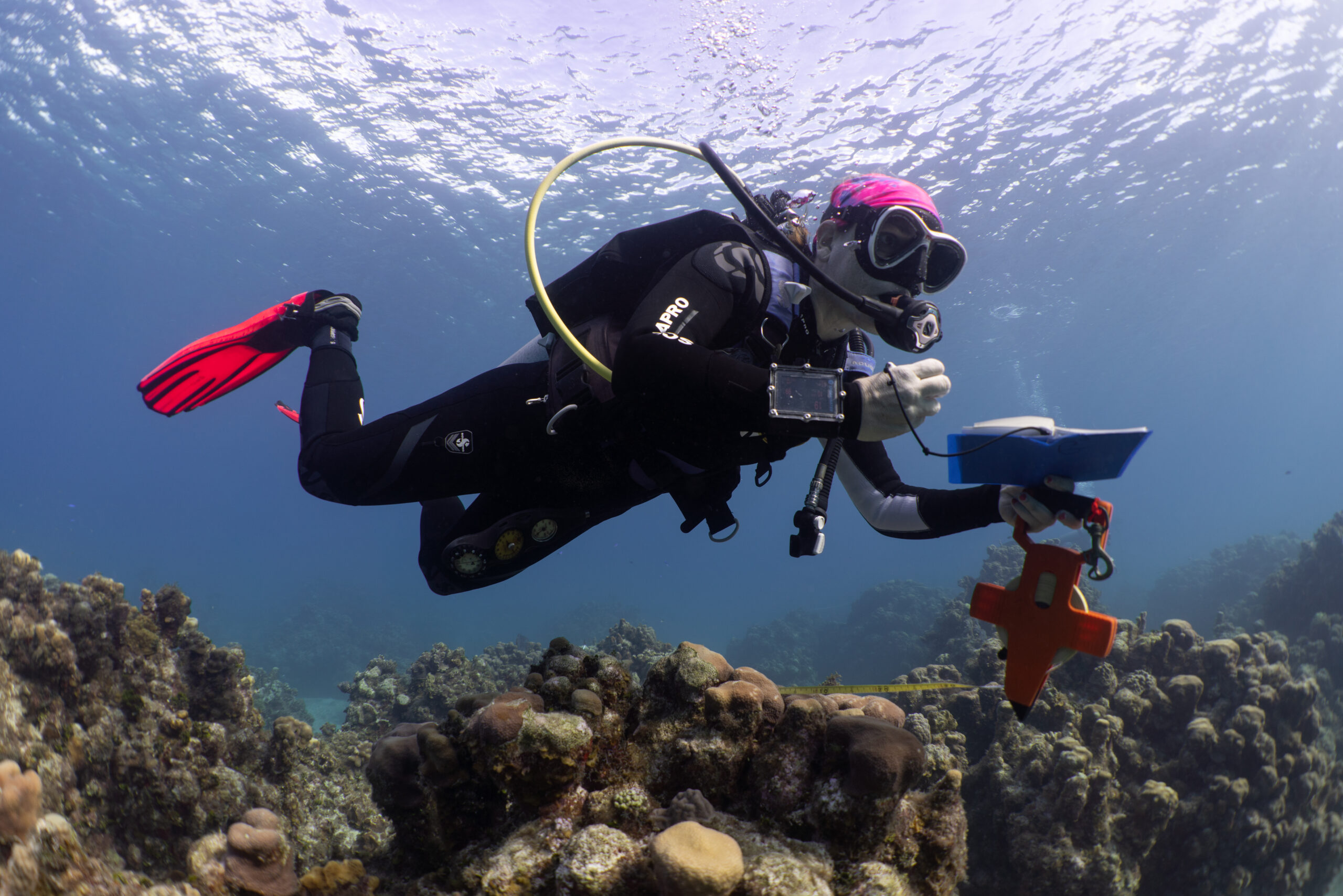NEWS
Quiet Oceans Study Indicates Fish Population Resilience

George Town, Cayman Islands: 12TH NOVEMBER 2021 – As world leaders begin their travels home after a week of discussion about the status of planetary health at COP 26, CCMI has released their Quiet Oceans Study results at the Gulf and Caribbean Fisheries Institute (GCFI), which indicates that not only do fish populations increase in density (number of fish) and biomass (number of different species of fish) with respite from human activity but herbivorous fish, who are crucial to coral reef health, are the biggest respondents to quieter oceans.
Global climate change is impacting ocean health in various ways, including ocean warming, which results in disease and bleaching, increased storm activity and ocean acidification. The most impactful way to manage local marine ecosystems in the face of climate change, is to reduce local stressors. Noise pollution has been proven to interfere with natural fish behaviour, with impacts affecting physiology, reproduction and response to predation.
The border closures in the Cayman Islands, which began in March 2020 and continue to this day, provided the Central Caribbean Marine Institute (CCMI) a rare opportunity to measure the impacts of “Quiet Oceans” on resident fish populations in Grand Cayman. Dr. Gretchen Goodbody-Gringley, CCMI’s Director of Research, began the study in July 2020, once the local lockdown rules were lifted to allow scuba diving. The study includes four dive/snorkel sites on the west of Grand Cayman, with CCMI’s researchers conducting fish surveys there every two months.
CCMI’s Quiet Ocean Study includes high traffic, popular tourism sites in Grand Cayman. While the research team expected an increase in fish density, an unexpected result has been the delayed response in biomass, where the increase was only seen after 15 months, and the relatively stronger response of herbivores. More specifically, the study indicates that parrotfish, chubs and surgeonfish, all important herbivores, have increased in density in response to reduced human activity. Herbivorous fish have been proven as key species in helping maintain a healthy coral reef, specifically because of their role as ‘algae managers’, keeping algae under control so corals can persevere. When facing the threat of coral disease, as is currently being experienced in Grand Cayman with the Stony Coral Tissue Loss Disease outbreak, herbivorous fish will be crucial to the recovery process. There was also a significant increase in juvenile parrotfish during the latter stages of the study, indicating that recruitment may be driving increased densities and suggests that these populations will continue to recover as long as the ocean remains quiet.
Dr. Goodbody-Gringley gives more detail on why this study is so important:
“We are at a critical point in time, when nationally and internationally, our leaders and conservation managers are looking at how to effectively manage the marine ecosystem sustainably. This study indicates that that near shore reef ecosystems can rebound from human impact, when given the opportunity to rest. A return to ’business as usual’ after Covid-19 will reverse this recovery – more consideration to coral reef resilience must be built into our policies, seeking to promote long-term stability and increased coral cover. MPA protection is a good example of this and in the Cayman Islands the recent MPA expansion is testament to good conservation practice. But this may not be enough and as tourism ramps back up, it is an ideal opportunity to look at how the natural environment, especially our ’blue assets’ can be better managed alongside economic activity.”
Dr. Goodbody-Gringley has been asked to present her research findings at the Food and Agriculture Organisation of the United Nations on the 8th December 2021. The Quiet Oceans study has been supported by Walkers and the Darwin Plus Initiative.
